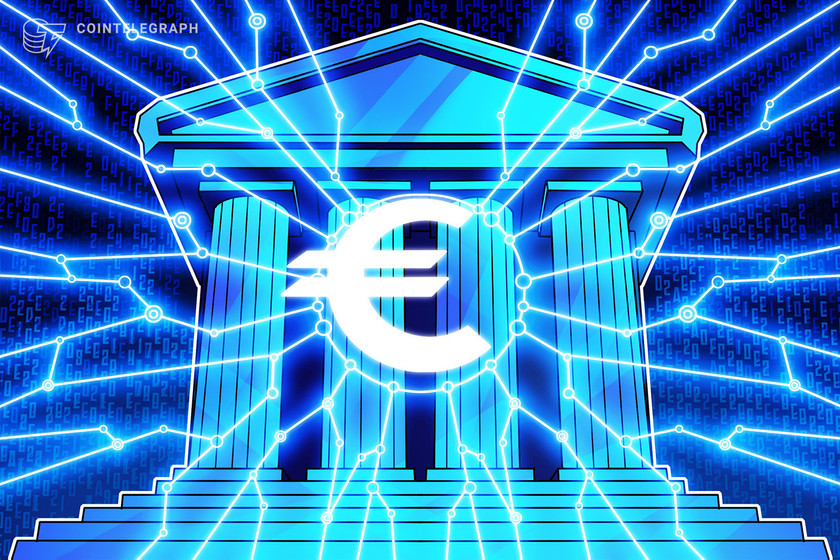EIB settles €100 million digital bond on private blockchain


“Unlike some cryptocurrencies using blockchain technology, the EIB’s blockchain bond issues do not lead to extensive energy use,” the bank wrote.
According to a new press release on Nov. 29, the European Investment Bank, or EIB, issued a first-ever euro-denominated €100 million digital bond on a private blockchain-underpinned platform with tokenization help from Goldman Sachs.
The latter, along with Société Générale Luxembourg, also act as the on-chain custodians for the financial instrument. The bond bears interest at a coupon rate of 2.57% per year with a maturity date of Nov. 29, 2024, and is governed by Luxembourger laws.
Banque de France and the Banque Centrale du Luxembourg participated in the project to provide a digital representation of euro central bank money. The EIB says that “the transaction paves the way for future on-chain derivative solutions, by using the first interest rate swap hedge represented through the industry-developed common domain model.”
In addition, the bond represents the “first cross-chain Delivery vs. Payment (DVP) settlement using an experimental CBDC [Central Bank Digital Currency] token.”
Last April, the EIB successfully issued the first digital euro bond on a public blockchain. Goldman Sachs, Banco Santander, and Société Générale led the sale of the two-year €100 million digital bond. Regarding today’s novel digital bond issuance on a private blockchain, Ricardo Mourinho Félix, EIB’s Vice President, commented:
“Blockchain has the potential to disrupt a wide range of sectors. It plays a central role in the success of Europe’s green and digital transitions, and strengthens our technological sovereignty. Innovation is part of the EIB’s identity and issuing this fully digital bond is another important step in helping to develop a fully digital ecosystem.”



